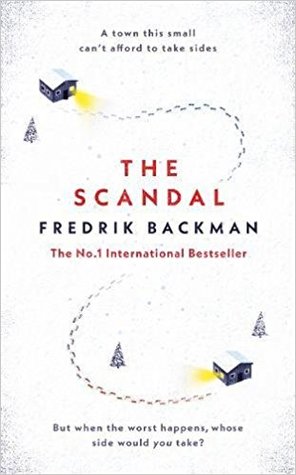![By Seattle Municipal Archives from Seattle, WA (Woman reading, 1930sUploaded by jmabel) [CC BY 2.0], via Wikimedia Commons By Seattle Municipal Archives from Seattle, WA (Woman reading, 1930sUploaded by jmabel) [CC BY 2.0], via Wikimedia Commons](https://jillscene.com/wp-content/uploads/2015/06/woman_reading_1930s.jpg?w=300&h=253)
Woman Reading (Seattle Municipal Archives CC BY2.0)
It was the perfect reading environment and as it turns out I developed a fever, Ferrante fever.
As is the case with many fevers, it crept up on me gradually. For a long time, I believed I was strong enough to put these books down, to abandon the story, give up on the characters, move on to some other supposedly more satisfying, more enjoyable, less demanding read.
I was wrong.
I first read about Elena Ferrante’s Neopolitan series on Felicia’s Blog Love.Life.Eat. It was obvious that Felicia was impressed. For a while she wove quotes from Ferrante into her posts, even ones ostensibly about a visit to the dentist.
Elena Ferrante’s name began to pop up everywhere.
Susan from A life in Books observed: The novels
took the literati Twitterati by storm last year and it’s still raging, although rhapsodising would be a better word.
Claire McAlpine at Word By Word has reviewed the first three books in the series: My Brilliant Friend, The Story of a New Name, Those Who Leave and Those Who Stay. Check them out, if you want a precis of each of the novels.
Ferrante eschews almost all of the promotional activities expected of writers today, and has done so since her first book was published. She does have a website, but it’s best described as minamalist. She does do some interviews, but very few.
There’s one in The Paris Review of Books.
She’s an author who knows how to get out of her own way, who believes in letting her work speak for itself. Some have suggested she could be male. After all, Elena Ferrante is a pen name. Even her translator, Anna Goldstein, has never knowingly met her. You can listen to a discussion hosted by The New Yorker with Anna Goldstein here.
My money is on her being a woman – she’s got the inside know how on how women think. She writes the truth of women’s experience unlike any other. At times I’ve gasped at her willingness to explore territory few, if any, have ventured into so unflinchingly.
The series is about the friendship between two women, Elena, the narrator and her childhood friend, Lila. They grew up in a poverty stricken and violent post-war neighbourhood in Naples.
Near the beginning of the first book in the series, My Brilliant Friend, the narrator has this to say about her doll, and the doll of her friend Lila:
“The two spied on each each other, they sized each other up, they were ready to flee in to our arms if a storm burst, if there was thunder, if someone bigger and stronger, with sharp teeth, wanted to snatch them away.”
It was clear this was not going to be an account of an idyllic childhood where children were kept safe, their talents fostered by benevolent adults. Or, for that matter, an account of two friends who have each other’s backs.
Elena Ferrante knows that friends are not always friendly. She knows that the ground shifts. She shows us that self-interest, competition, the very struggle for survival, are all at play, most of the time.
I nearly abandoned My Brilliant Friend at this point. I could see it was going to be a grim read; that relief, let alone redemption, would be unlikely.
What kept me reading? It would be easy to say it was the plotting, the characters, the delivery of one carefully timed cliff hanger after another. All of which did help. But, more than all that, Ferrante tells the story of these two women with an authenticity that brought it alive, so that in the end I was there in the book, living those lives.
She describes it best herself in the Paris Review interview.
Literary truth is not the truth of the biographer or the reporter, it’s not a police report or a sentence handed down by a court. It’s not even the plausibility of a well-constructed narrative. Literary truth is entirely a matter of wording and is directly proportional to the energy that one is able to impress on the sentence. And when it works, there is no stereotype or cliché of popular literature that resists it. It reanimates, revives, subjects everything to its needs.
Although it took me a while to get to know her characters, as is usually the case with relationships that have developed over time, I care about them deeply. I want to know, must know what happens. For the first time in my life, in the grips of Ferrante Fever, I read all the books available in the series one after the other.
And now I have to wait until September for the release of the fourth and final volume, The Story of the Lost Child.
Can’t wait. Have to wait.
Do you have Ferrante Fever? Or a favourite series?
Categories: On Books





Hey, I’ve been thinking about you! I followed your recommendation from this post and downloaded the trilogy right before we set sail for the West side of Fiji (from the East side). The first 2 books got me through our days in the internet free’ anchorage and am now working my way through the third. I see you have a new book of the month in a subsequent post. Will have a look. Thank you!
LikeLike
Bula vinaka, Lisa! Wonderful to know that you had such excellent books to keep you company while you were offline. Thanks for coming back to tell me.
“All The Light We Cannot See” is a very different book, but I found it to be a very satisfying read, nevertheless.
LikeLiked by 1 person
😃 it’s on my kindle now waiting for a read in a remote anchorage which I hope to be sailing to in 2 weeks ⛵️
LikeLike
Shadow of the wind is a good one, Jill. 🙂 I hesitate to seek out Ferrante for fear of getting addicted! I read pretty slowly these days (i.e spend too much time on the blog) but I love a good read. 🙂
LikeLike
Oh, you’re the second person to recommend Shadow of the Wind, Jo. And yes, all the great blogs out there are a distraction. But all reading is good.
LikeLike
I noticed that in the comments 🙂
LikeLike
Yes, I have Ferrante fever too. I’m starting the third book right now, and I’m glad I won’t have to wait too long to get my hands on the 4th book.
LikeLiked by 1 person
Oh, enjoy, and yes the countdown is on. Thank-you for visiting and commenting, mamamuseme.
LikeLiked by 1 person
You have intrigued with your snippets and snap shots, just enough to make me want to dip in to this, to me, unknown author.
LikeLike
Pauline, you know I’ll value your opinion about it, if you do take a dip into this one. 🙂
LikeLiked by 1 person
The series sounds addictive.
LikeLike
Very 🙂
LikeLiked by 1 person
I was not familiar with Ferrante (I am so not with it) but will have to check her out. My favorite series of late is Carlos Ruiz Zafon The Shadow of The Wind trilogy.
LikeLike
Ha – Lisa you are so with it, you’re in one of most favourite group of islands in the world, right now! I’ve heard of the Shadow of the Wind but not gotten around to reading it, yet. Another to add to my must read list!
LikeLiked by 1 person
Never heard about these books – but you have my curiosity piqued!
LikeLike
Hello Sue – Good to know I piqued your curiosity. I think we’ll hear more and more about Ferrante as we get closer to the publication date of the fourth in the series.
LikeLiked by 1 person
Well, I’m on the hunt for them!
LikeLiked by 1 person
Your post arouses my curiosity about the Ferrante series. I must admit, I had not heard of this series before but new I want to dig right in….
LikeLike
Hi there, writenlive, I’ll be very interested to know what you think of the series if you do take the plunge! Thanks for visiting and commenting 🙂
LikeLiked by 1 person
Thanks for providing a link to my reviws Jill. I’m not usually one for reading series although I like to have an opinion, but something about the Neopolitan novels compelled me to read them all and I will defintiely be reading the 4th as well.
They are authentic and yet there is an element of the unknown, the way they speak a different dialect, inhabit a unique and character driven neighbourhood, try to resist its pull and get sucked into it no matter how far from it they travel. It certainly feels like Ferrante, whoever she may be really inhabits her characters and it is that energy that pulls the reader along, invested in the outcomes of Lila and Elena.
I have read two other trilogies that were unputdownable and that I highly recommend, particularly for those who enjoy historical fiction and/or epistolary reads; one is by Sandra Gulland, The Many Lives and Secret Sorrows of Joesphine B, a very well researched account of the life of Rose Tacher, a young woman born in Martinique who grows up believing in voodoo magic, who will become Josephine Bonaparte and the second by Nancy E Turner These is My Words also based on a true story, that of the authors great grandmother Sarah Prine, a pioneer woman who achieved remarkable things out of sheer will and determination.
Both have an authenticity about them that the author has managed to convey and that compels the reader to want to devour, one after the other.
LikeLiked by 1 person
Hi Claire, for me it’s the energy of Ferrante’s writing in this series that keeps me fully engaged and hungry for more. And thank-you for your recommendations. Josephine Bonaparte is a fascinating historical figure and I didn’t know about this series – it sounds very promising. So does These is My Words. Ah, so many great books, so little time!
LikeLiked by 1 person